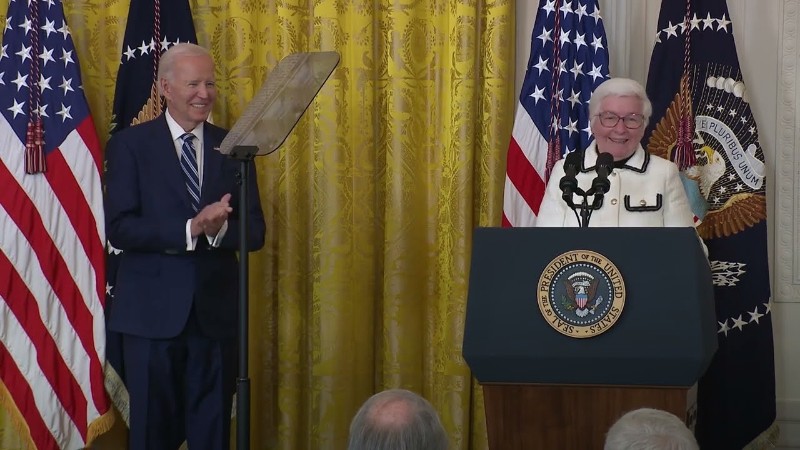With the onset of colder weather, Massachusetts residents are bracing for higher heating bills as energy costs surge. In response to this pressing concern, community action agencies are urging residents to seek assistance with heating bills through federal programs.
The federal Home Energy Assistance Program (HEAP) is one such initiative providing crucial support to households struggling to afford heating costs during the colder months.
To qualify for assistance, households must have an annual income below 60% of their state’s median household income. In Massachusetts, this equates to approximately $95,000 for a four-person family.
Liz Berube, Executive Director of Citizens for Citizens, a community action agency serving Southeastern Massachusetts, emphasized that the eligibility rules are more inclusive than many realize.
Berube encourages everyone who is struggling with their heating bills to apply. The guidelines are designed to help a wide range of income-constrained families and individuals, including seniors and those on fixed incomes.
Residents can learn more about the program and apply by visiting HeatingHelpMA.org or contacting their local community action agencies. The assistance covers costs for heating fuel, electricity, and even weatherization upgrades to improve home energy efficiency.
Key Takeaways
Massachusetts is launching a home heating aid program as energy costs surge, urging residents to seek assistance through federal programs like HEAP.
- Households with an annual income below 60% of Massachusetts’ median household income (approximately $95,000 for a four-person family) are eligible for the Home Energy Assistance Program (HEAP).
- Residents can apply for heating aid by visiting HeatingHelpMA.org or contacting their local community action agencies.
- The program covers costs for heating fuel, electricity, and weatherization upgrades to improve home energy efficiency.
Heating assistance in Massachusetts
The Department of Public Utilities has approved rate increases for natural gas services provided by companies like National Grid and Eversource. These increases are expected to result in significant jumps in customers’ monthly heating bills over the coming months.
State Senator Joan Lovely, representing the Second Essex District, expressed concern over how her constituents will manage the escalating heating costs this winter.
Every single day, the biggest call to our office is housing insecurity and how am I going to heat my home.
State Senator Joan Lovely
Lovely acknowledged the valuable work done through collaborations among federal, state, and local organizations for the continuation of the heating assistance initiative.
Joe Diamond, Executive Director of the Massachusetts Association for Community Action (MASSCAP), highlighted that the benefits of staying warm extend beyond just lowering energy expenses.
It is a health program. It’s a safety program. It’s a housing preservation program. It is also a program that allows people to access other programs.
Joe Diamond
A warm home is fundamental to health and well-being. Access to heating aid not only helps financially but also contributes to the overall safety and health of individuals and families, especially the elderly.
In addition to financial aid, individuals and families receiving heating aid automatically qualify for weatherization programs. These programs offer services such as insulation and heating system repairs to improve energy efficiency, ultimately reducing long-term energy costs.
Who qualifies for assistance
Eligibility for the heating assistance program is based on several factors, notably household size and the gross annual income of all household members aged 18 and older.
Households earning up to 60% of the state median income are eligible. For instance, a family of four that earns less than $95,000 per year would qualify for the program.
Some people don’t apply because they assume they won’t qualify. However, the income limits are higher than many expect, and even homeowners may be eligible.
The government has allocated funds specifically to help individuals and families with lower incomes pay their heating bills. With energy costs on the rise, taking advantage of this assistance can provide significant relief.
Understanding the application process
First-time applicants are required to participate in an intake appointment to assess their eligibility and specific needs. To begin the process, individuals can submit an online application or reach out directly to their local community action agency.
During the application process, applicants should be prepared to provide several important documents. These include a photo ID for the head of the household, such as a driver’s license, and information about all household members.
Details about heating bills—like the heating company’s name and account number—are necessary, along with information regarding the housing situation, such as an active lease or mortgage statement.
Proof of income for all the members of your household aged 18 and over is also required, covering the 30 days before the application date. This can include wage stubs, pension statements, or other forms of income documentation.
The program aims to assist a broad spectrum of individuals, including homeowners and renters, many of whom may not realize they are eligible.
Tips for saving heating costs while ensuring comfort
Many may find themselves concerned by the recent rate increases approved by the Department of Public Utilities, which are expected to impact utility bills significantly in the coming months.
But staying warm during the winter months doesn’t have to lead to high energy bills. Especially for seniors, it’s crucial to find effective ways to manage heating expenses without compromising on comfort.
Here are six practical tips to help seniors reduce heating costs while ensuring a cozy home throughout the colder seasons:
1. Optimize thermostat settings
Lowering your thermostat by just a few degrees can significantly reduce heating expenses. Consider setting it to the lowest comfortable temperature, typically around 68°F when you’re home and lower when you’re sleeping or away.
Using a programmable or smart thermostat allows for automatic adjustments, ensuring your home is warm when needed and conserving energy when it’s not.
2. Seal drafts and enhance insulation
Drafts from windows and doors can let cold air in and warm air out, making your heating system work harder. Use weatherstripping or caulking to seal gaps around doors and windows.
Adding insulation to attics, walls, and floors can also prevent heat loss. Even simple solutions like draft stoppers at the base of doors can make a noticeable difference.
3. Leverage natural sunlight
Harness the warmth of the sun by opening curtains and blinds on south-facing windows during the day. Sunlight can naturally raise the indoor temperature, reducing the need for additional heating. Close the curtains at night to add an extra layer of insulation against the cold.
4. Maintain your heating system
Regular maintenance ensures your heating system operates efficiently. Replace or clean filters monthly during the heating season. Schedule annual check-ups with a professional to inspect and tune up your furnace or boiler. An efficient system uses less energy, saving you money in the long run.
5. Dress in layers and use warm bedding
Wearing layered clothing indoors, such as sweaters and warm socks, allows you to stay comfortable at lower room temperatures. At night, use flannel sheets, thermal blankets, or electric blankets to keep warm without turning up the heat. This simple step can lower heating costs without sacrificing comfort.
6. Use space heaters wisely
If you spend most of your time in a single room, consider using an energy-efficient space heater to warm that area instead of heating the entire house.
Be sure to follow safety guidelines: keep the heater on a flat surface away from flammable materials, never leave it unattended, and look for models with safety features like automatic shut-off.
With these simple tips, seniors can enjoy a warm and comfortable winter while keeping heating costs manageable. Small changes can lead to significant savings, ensuring that staying cozy doesn’t come at the expense of your budget.
As the colder months approach, Massachusetts is bolstering its efforts to ensure all residents, especially the vulnerable and elderly, can access essential heating assistance through Home Energy Assistance Program (HEAP).
This initiative is a testament to the power of community and governmental cooperation aimed at safeguarding residents from the biting cold, ensuring they don’t have to choose between heating and other critical needs.
With substantial federal funds enhancing local capabilities to combat rising heating costs, Massachusetts stands prepared to support its residents in maintaining warm and safe homes throughout the winter season.















